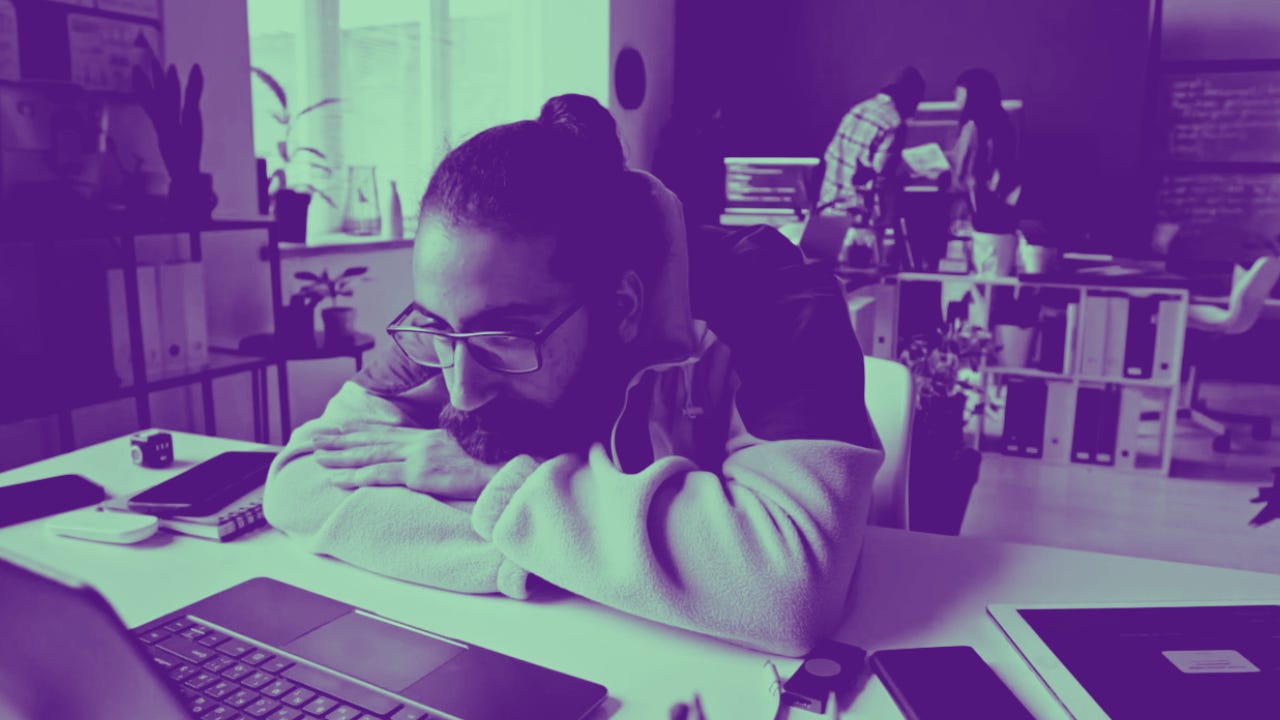The Truth About Burnout: It’s Not Just About Working Too Much
Over giving, Overthinking, and the Cost of Caring Too Much
This is
- your weekly guide and shortcut to mastering emotional intelligence through the power of empathy. I recently wrote about how to Manage Up, without sounding like a Suck-Up.
It’s Tuesday at 2pm. But it feels like Thursday.
You are exhausted.
You might crack.
You have not worked that long of a day, but it feels like most of the week has passed in less than 2 days.
You lead with heart in all that you do. You give, volunteer, take initiative, and meet your deadlines. You are someone people can rely on.
You are burned out, maybe?
But how could you be? You have a great job. You are paid well. You like your colleagues.
Maybe it’s burnout?
Burnout Is Sneakier Than You Think, Here’s How to Spot It
Years ago, I was irritable at home, even after hours of deep relaxation.
It seemed I could not get a break, even from myself.
I just wanted to veg in the backroom with my iPad, forgetting I had my to-do list of household duties and that I had to return to work on Monday. But I did not acknowledge that I was burnt out. I thought I was just tired.
In Emotional Intelligence, Daniel Goleman describes self-observation as allowing awareness of our turbulent feelings (p. 42). He describes it as a “parallel stream of consciousness hovering above or beside the main flow” (p. 42).
Have you ever driven somewhere, arrived, and wondered where the time went? You do not even recall the turns you took or the stops you made.
Burnout can be the same way. We do not notice it generally. It just sneaks up, much like arriving at your destination in the car.
Step outside of yourself. Sit there, remove your eyes from your phone, and stare into space if you need to. Think. What are you feeling? Where are you feeling it?
The first step to spot burnout is to stop the auto-pilot mode and observe from above or beside yourself.
The Emotional Side of Burnout No One Prepares You For
So you are burned out, now what?
You don’t just have charged feelings with your burnout; your reaction to it might further inflame your irritation about it.
Let’s face it – getting to a point of burnout can feel like a failure. It can take an emotional toll that nobody necessarily prepares you for. All the professional development resources in the world will tell you to take time for “self-care” and do “relaxation” techniques, but not many will address the shame that goes with it.
When I was burned out several years ago, my shame in feeling what I did worsened matters.
Truth be told, I had to let myself feel it. I could suppress it. Self-medicating with junk food or taking walks until I reached a sweat (healthy way) was helpful. But I had to trudge through it, much like recovering from a cold.
I could tackle it once I recognized it and felt it (not suppressing it).
I recognized it, but I made a mistake in not recognizing it sooner. It may not have gotten as bad.
I’ve worked in tech for years and was in tech when this happened. Tech is intense. Before you know it if you do not have your calendar blocks for lunch, focus time or OOO up in advance, you feel like you are 24/7. This is draining.
It does not happen overnight. It’s like a plugged bathtub leak. The drips will be slow, but eventually, the water will spill.

Fixing Burnout Starts with One Simple Mindset Shift
The bad news is that recovering from burnout is not an overnight process.
The good news is that recovering from burnout can be reached sooner than you think.
It starts with understanding where we want to be.
To get here, we shift our mindset. Even if you do not see the exact path forward, you tell yourself it is there. You trust the process.
I told myself, “I am on the path to not being burned out.” I needed to first check myself, knowing this was not permanent. Life and the stages we encounter are fleeting. I had reached the bottom, and I had to believe I was moving on out.
What we think is what we do, and what we do leads to the change we wish to see. We must already be aware that we are on the path to being there.
One morning, I woke up with a tall glass of water and coffee. It helped “clear the sludge” of my mind.
I took a 5-minute break during my workday to stare at my orange salt lamp. This moment of mindfulness, despite being brief, pulled me out of my head.
Shifting my mindset got me looking for new roles elsewhere. However, not all looked like greener pastures, as I recognized what got me here.
As a highly empathic person, I have a tendency to give. But giving it to the point that it is draining is not empathy at all, but rather self-neglect. If I was going to be in a role, it needed to be one where the expectation was to be as such (always on, always working, and mental breaks). I needed to find a place I could meet.

Why ‘Just Rest More’ Is the Worst Burnout Advice Ever
You are exhausted from your burnout. But is it because you lack free time or do not sleep enough? Perhaps that contributes to it, but getting more of both will not resolve your burnout if the root issues exist.
Say you are intolerant to a specific food. Yes, taking a “rest” from it will help clear your system temporarily, but if you consume it once again, you will feel sick. Burnout works much the same way. You can “rest more,” but you must root out the source issues.
You do this first by naming what you are feeling. You are not a failure for getting to the point you are. It’s okay to be pissed off. The key is to not get stuck in it. Shift your mindset, and know this is temporary.
Believe, and tell yourself you are on the path to healing. It will be gradual, but you will. Your beliefs and thoughts will guide your actions. You know yourself best. It might be a new job, boss, place to live, hobby, group of friends, room setup, or something else. Minor changes pivot us.
If you lay flat more, you will remain flat. Rest is needed to recharge, but is just one step. If you tilt the angle you are heading by just a degree, you will see forward movement. Small pivots go a long way to propel forward. You got this!
✅ What I’ve been Analyzing this week (reading, watching, listning, etc.)
📖 I’m reading “The Courage to Be Disliked: The Japanese Phenomenon That Shows You How to Change Your Life and Achieve Real Happiness” by Ichiro Kishimi and Fumitake Koga.
📺This short video captures a new story about a tree in Ireland that can talk, with the power of AI!
✍️ I commented on a post by
who write the Substack, where she talks about how ChatGPT is not your Therapist. I found this post incredibly intriguing as a person focused on Humanity-First AI.Want more on Empathy and Emotional Intelligence to Elevate your career? 📈
I empower💪tech people to elevate their empathy, to accelerate their careers




This is such a beautifully non-judgemental approach to looking at burnout not as an end but part of a journey. Thank you so much for writing this and framing the issue of burnout in a new way.
As someone who experinces burn out often, I use to feel like i was lazy (i actually am, towards certain things), but now I've decided to make time for other things that don't involve screens or technology. slowly and surely.